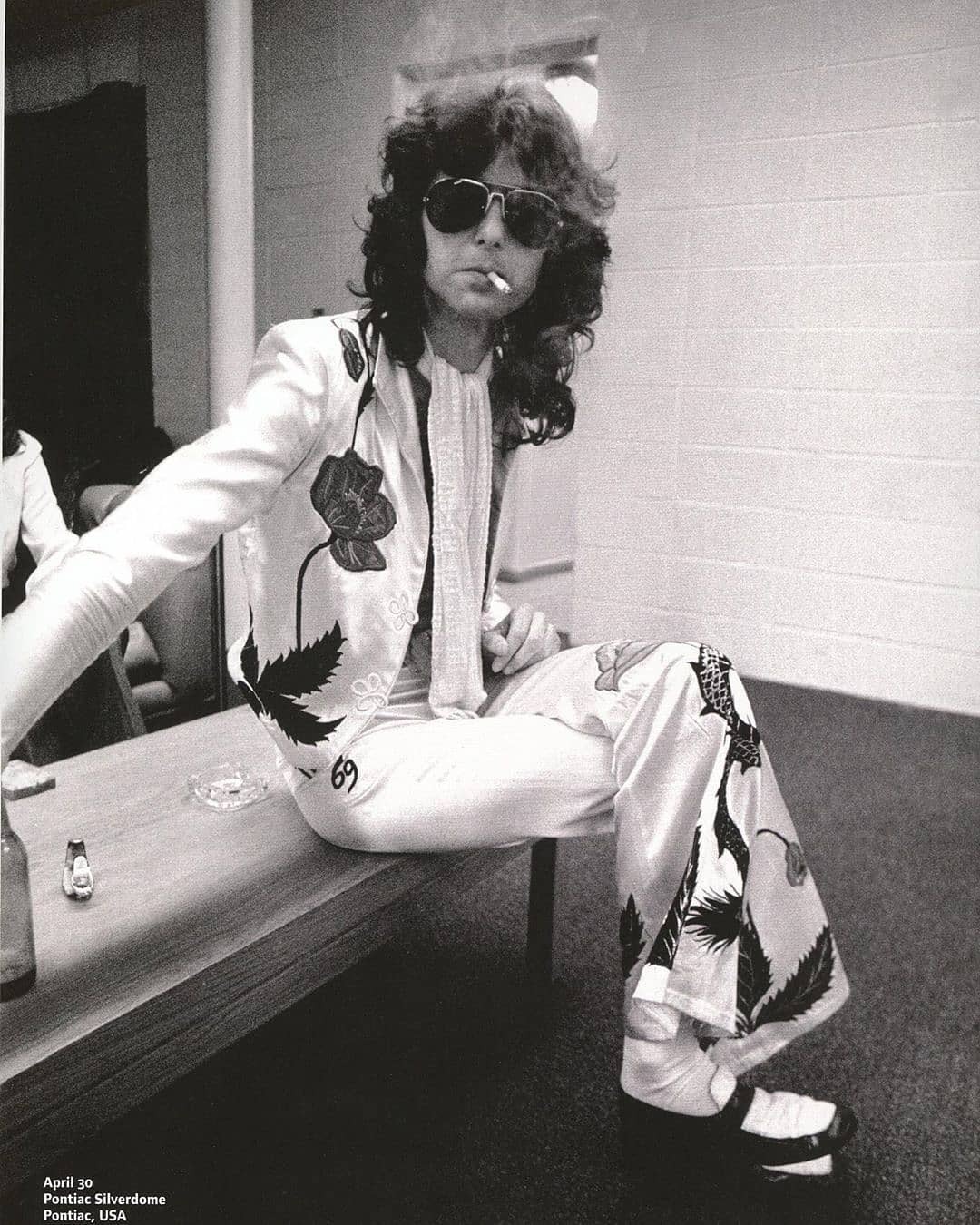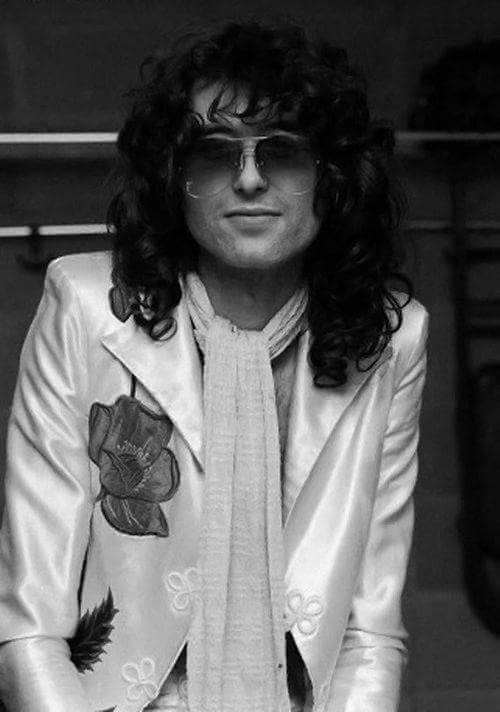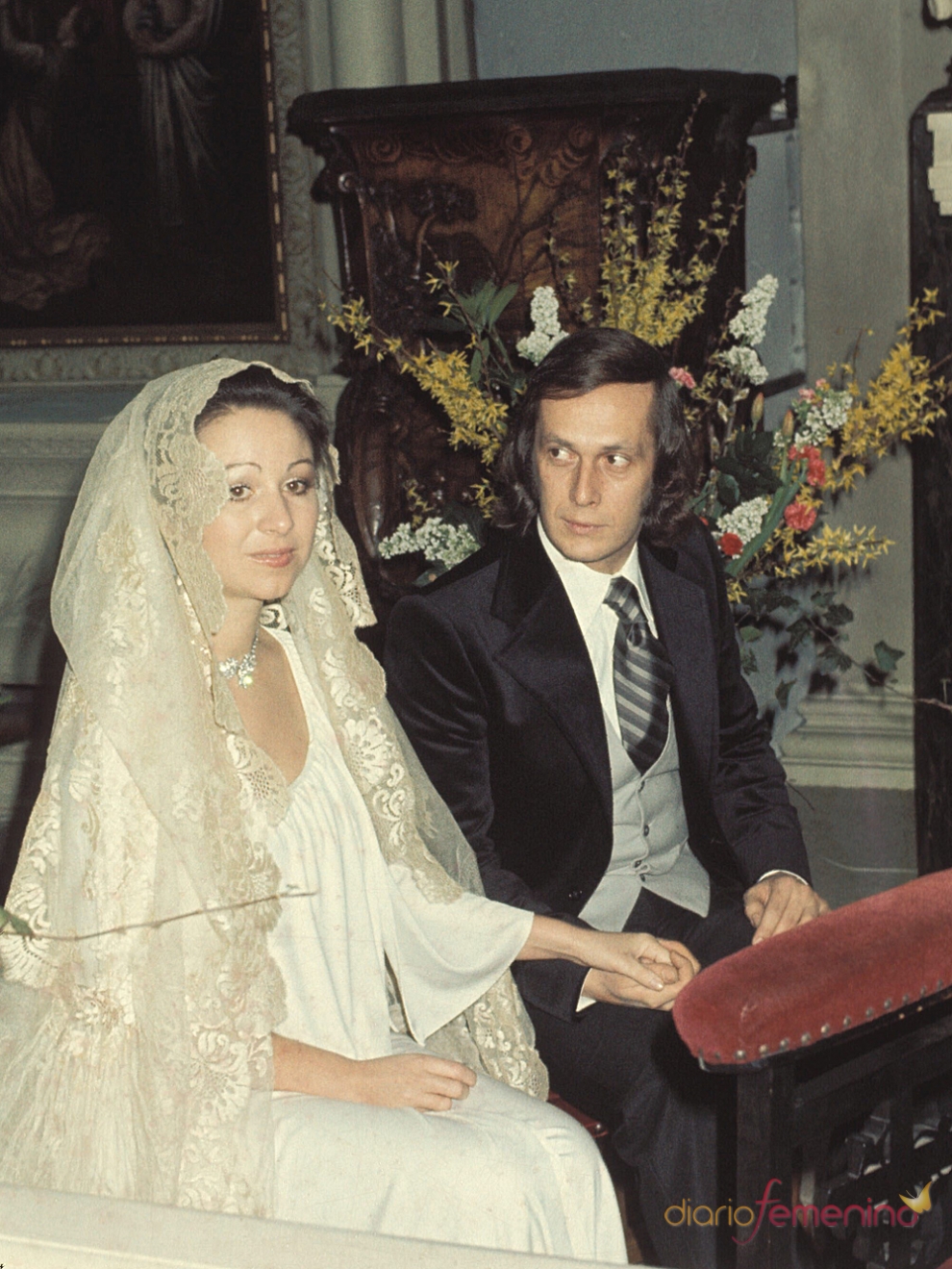Terry Chimes, 59
Then: Drummer, The Clash
Now: chiropractor
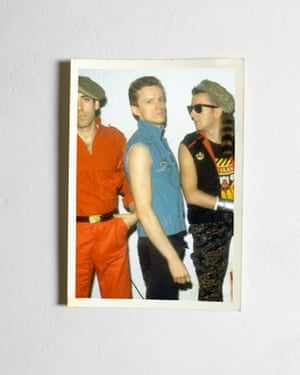
Terry Chimes, middle, during his days in The Clash. Photograph: Alan Powdrill for the Guardian
I just wanted to be in a band, and this was the most exciting band I could find. Everyone else in The Clash was angry at the world and the establishment. I wasn't. That's why I left, actually. I felt like the odd one out.
As a child, I wanted to be a doctor, but I also wanted to be a musician; it's kind of hard to be both. The part of me that wanted to be a musician won that particular battle – you have to do music when you're young. But by the time I'd done it for 15 years [playing with Black Sabbath and Hanoi Rocks as well as The Clash], I was craving working in medicine more and more, so I made the big jump. In 1988, at 32, I stopped music and spent five years studying full-time. My musical peers weren't that surprised. The Clash's manager Bernie Rhodes once said, "You're like some young doctor. I can imagine you saying, 'Here are your pills, madam.'" I don't know where he got that from, but he'd spotted something.

Terry Chimes now.
During my time in music, I saw how people's health was determined by their lifestyle. I had a strong urge to heal people. I've now seen more than 45,000 patients, so I've made a lot of people better. If you don't like people, then it's the job from hell. I treat a lot of musicians. They say, "I'd rather come to you. You're a musician and you understand what I do." Some patients are interested in music and like to have a chat about it, but most just say, "I'm in agony. Can you please get rid of it?"
Everyone else in The Clash was angry at the world and the establishment. I wasn't. That's why I left
The experience of challenging and changing the establishment was good for everyone at the time. Whatever you do after that you bring that with you: the sense that things don't have to be the way they are. I have another life now, standing up against massive corporations that want to ruin everyone's health and make money out of it, whether with genetically-modified food, sugar-laden rubbish or drugs we don't really need.
People say to me, "Don't you miss playing in front of 70,000 people?" Well, I'll probably see 70,000 patients before I die. Getting people well and making them happy: I don't think I'll ever want to stop doing that.
Steve Ignorant, 58
Then: lead singer, Crass
Now: lifeboatman
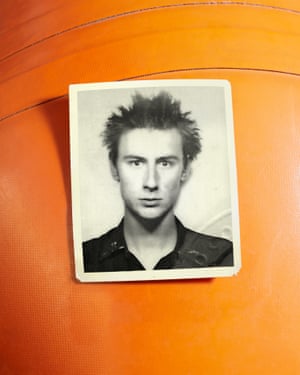
Steve Ignorant was the lead singer for Crass from 1977 to 1984.
Punk had a purpose. Every gig would benefit something: a rape crisis centre, a donkey sanctuary, an old people's home. It was positive. We wanted a nice world to live in. Only, this time, we weren't asking – we were telling.
From 1977 to 1984, I was the lead vocalist for Crass. We toured the UK, playing gigs wherever and whenever we could. When Crass finished, I continued to perform and record with Conflict and later formed the bands Schwartzeneggar and Stratford Mercenaries.
In 2007, I moved to Norfolk with the intention of living quietly by the coast. I was going to sweep up leaves and all that sort of stuff – but it wasn't to be. The year I moved, I got an offer to do two nights at Shepherd's Bush Empire. With every gig I do, I like to donate to a cause. I knew the independent lifeboat service in Sea Palling is always desperate for funds, so I thought that was ideal: I could see where the money actually goes. They got about £1,000 and bought new life jackets that went on to save people's lives.
The crew took me out on the boat, dressed me up in a drysuit, threw me overboard and picked me up, then asked, "So, what about joining?"
At first, I was very reluctant – I worried about the commitment and imagined that I would have to go on parade. The idea of some bloke looking me up and down and telling me off for not shaving properly went totally against my principles. But they were all scruffier than me. Now I'm a full-time member.
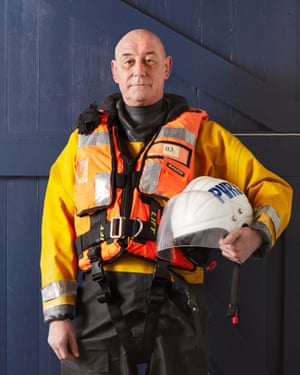
Steve Ignorant now.
Being part of the crew is similar to being in a band. You're full of adrenaline when you're on stage, but the worst thing that can happen is that you forget the words or the lead guitarist plays a bum note. It's not the same adrenaline when you're suddenly out at sea and pulling someone from the water. It affects different people in different ways. It doesn't hit me at first, but about an hour later, it's as if I've taken amphetamines. I can't shut up about it.
Jordan, 60
Now: veterinary nurse
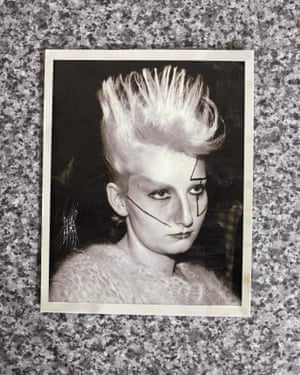
Jordan worked at the forefront of punk.
People said, "You must be so brave, looking like that out in the street." I'd often wear a mohair jumper with suspenders and stockings and see-through knickers. It was nothing to do with bravery. Quite the opposite. It was about feeling comfortable and at one with yourself. I always liked dressing my own way. When I came up to London to try to get a job at Vivienne Westwood and Malcolm McLaren's shop, Sex, I was already wearing the stuff they were selling – I had just cobbled it together myself. But there wasn't a job available straight away, so in the meantime I went to work in Harrods with green makeup on.
I eventually worked right at the forefront of punk with Vivienne and Malcolm. I styled the Sex Pistols – messing up their clothes. I appeared on stage with them, including on their first TV appearance on Granada's So It Goes, to lend weight to their performance fashion-wise. I also managed Adam And The Ants during their punk era.
A lot of the major music moguls were extremely sexist. An A&R guy once said to my face, "This is not a woman's job. You should be cooking and laying on your back." I didn't want to be there any more, so I came home to Seaford.

Jordan now. Photograph: Alan Powdrill for the Guardian
I wanted to work in something meaningful, so I got a job at my local vet's. I've now been there for 22 years. It's not pushing bits of paper around. It's a real job where you can make a difference to how animals are cared for. Punk showed me you could be whatever you wanted to be, and that's the way I've lived my life. I haven't changed.
It was nothing to do with bravery. Quite the opposite. It was about feeling comfortable and at one with yourself
A lot of my old teachers still live locally and bring their animals in. They remember all the trouble I got in at school. I had a row with my headmaster. He said, "I can't have you looking like this. You've got red and pink hair. You've got a mohican. They'll all start copying you." I told him, "No one's going to copy me. Look at them. They're laughing." They made me wear a headscarf when I walked between lessons. Now these teachers say, "Oh, I always loved how you looked." A bit of history has been rewritten.
[+]
#punks #punk #london #1977 #jordan #terrychimes #steveignorant #originalpunks







